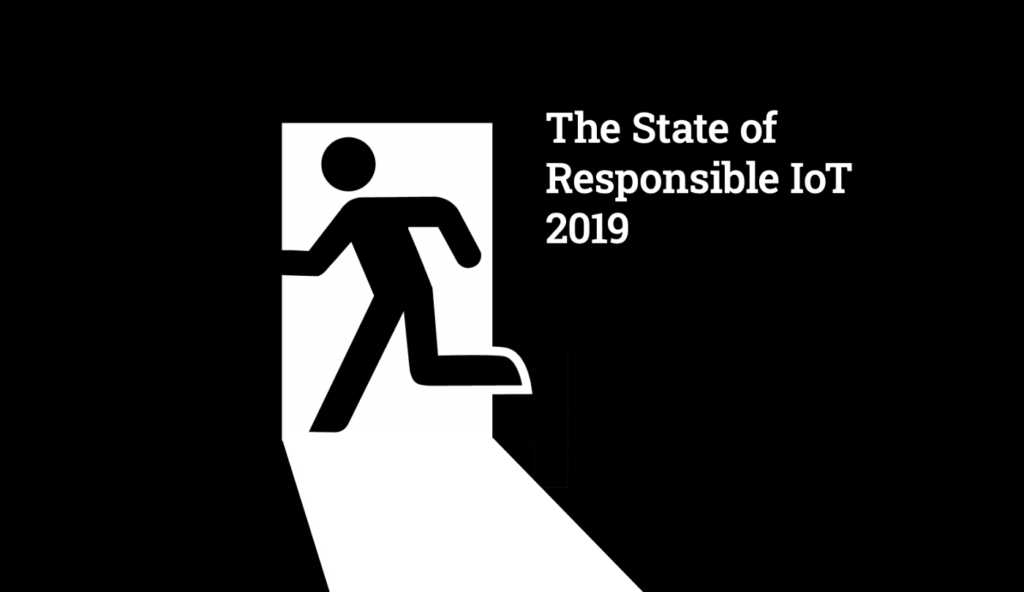The State of Responsible IoT 2019 report.

A simple illustrated image of a person running through an open door with the words ‘The State of Responsible IoT 2019 in the background.
After speaking at the Darmstadt University of Applied Sciences in Spring 2019 they invited me to participate in a publication about the state of responsible technology looking at surveillance capitalism and specifically, the effects that can have on human rights technology and democracy.
I thought I’d add three sections from the publication here as it reflects on my time at Ushahidi and my thoughts about what technologies like Ushahidi’s Crowd Sourcing tools mean to people around the world.
Technology for human rights has come a long way. What responsibilities does it now have to ensure citizens are safe and promote peace?
The ability and the intention to listen to an existing or growing community and offer that community accessible ways to communicate to the technology ‘owners’. Offering clear pathways to involvement in your tools or processes that empower first and ask of the community second.
Ushahidi, which means “testimony” in Swahili, defines itself as a platform: a technology platform, a platform for expression a platform for connection, a platform for understanding, a platform for globalized views on subjects, causes, needs, and human rights endeavours. Ushahidi is a technology leader in Africa, headquartered in Nairobi, with a global team. It is a social enterprise that provides software and services to numerous sectors and civil society to help improve the bottom-up flow of information.
But Ushahidi is more than the tech that is has built. It embodies a view, a standpoint that your voice has power, your needs are worth meeting and that your journey, your struggle to exist safely in the face of immense corruption, violence and abuses is not only valid but to be protected as your fundamental human rights and elevated to those who might exist in privileged positions where it is easy to remain ignorant.
…
But tools like Ushahidi’s exists in a delicate balance with surveillance capitalism, NGO global politics and citizen activism. In a way, Ushahidi as a data collection tool/platform has made data about, gathered and managed by marginalized people precious and commodified in complex ways. These tools and organizations have provided the tools and developed the ways for communities orbiting the fringes of the tech world the ability to become ‘commercially’ viable or ‘capitalistically’ valid.
…
So, what does activist created IoT like Ushahidi need to do in order to be responsible and accountable? Especially when it becomes coveted by international organizations, governments, and for-profit companies?
Community Responsivity and Responsibility
The ability and the intention to listen to an existing or growing community and offer that community accessible ways to communicate to the technology ‘owners’. Offering clear pathways to involvement in your tools or processes that empower first and ask of the community second.
Build to Avoid Harm
Understand that harm comes in many ways and any technology can facilitate harm at its most basic and promote and insight harm at its most complex. Harm is not just the threat of physical violence and death. Harm comes in how connected we feel, how lonely we are, the way we view ourselves and the world around us and how we come into a healthy relationship with those people and the world around us. Technology and the internet are the methods, the structure to which that relationship is built and as such has the potential to do great harm but also build safety and peace. Question every single innovation you partake in and how harm could be done with it. Build to remove harm and actively work towards peace.